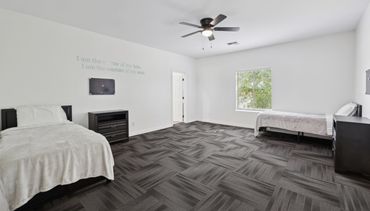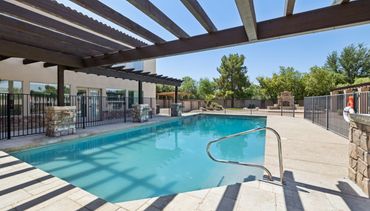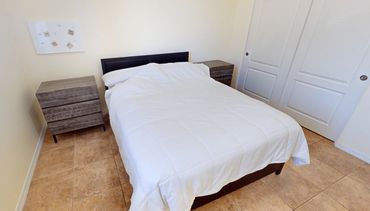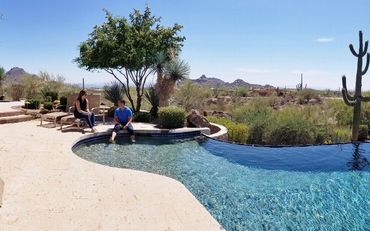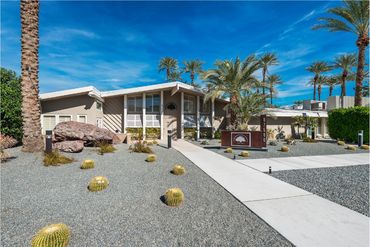
Drug & Alcohol Rehab Centers near Fountain Hills, AZ
In Fountain Hills, Arizona, taking the first step toward recovery from substance use disorder is vital. Before beginning this journey, it’s essential to research treatment options and payment methods to ensure individuals receive the necessary support for their recovery.
Treatment Centers near Fountain Hills, AZ
Open to Travel? Check out Top-Rated Options
All Treatment Centers near Fountain Hills, AZ
Are You Covered For Treatment?
- Phoenix Rehabs
- Tucson Rehabs
- Scottsdale Rehabs
- Prescott Rehabs
- Mesa Rehabs
- Tempe Rehabs
- Glendale Rehabs
- Yuma Rehabs
- Chandler Rehabs
- Gilbert Rehabs
Information About Rehab in Fountain Hills
Latest Reviews
Latest Reviews of Rehabs in Arizona
Fountain Hills Recovery
This facility saved my life! The staff are dedicated and amazing at what they do. I truly feel they gave me the tools I need to lead a sober life. The road to recovery is hard and change is scary. If you don't feel uncomfortable at some point then you are not growing. Fountain Hills Recovery did not coddle me. It was the perfect balance of accountability and empathy. Remember, addicts/alcoholics are a manipulative bunch and we need someone to talk straight with us or it just doesn't stick. Fountain Hills Recovery gave me that and so much more. Thank you, from the bottom of my heart!
Area Information
Fountain Hills, Arizona, is a picturesque desert oasis renowned for its natural beauty and serene atmosphere. With a population of approximately 24,000 residents, this charming community offers a peaceful escape from the bustle of nearby Phoenix. One of Fountain Hills’ most iconic features is the world-famous Fountain, which shoots water high into the air, creating a captivating sight against the backdrop of the McDowell Mountains. The town’s commitment to preserving its natural surroundings is evident through its numerous hiking trails, parks, and golf courses, making it a haven for outdoor enthusiasts. Additionally, Fountain Hills boasts a vibrant arts scene, annual festivals, and a close-knit community spirit, making it an ideal destination for both residents and visitors seeking a tranquil yet culturally enriched lifestyle.
Substance Misuse and Addiction in Fountain Hills, Arizona
Drug addiction is a pressing concern in Fountain Hills, mirroring the broader issue seen across the state of Arizona. Particularly alarming is the rising prevalence of fentanyl and opioid misuse. Recent data reveals a concerning trend, with overdose cases doubling since 2018. To illustrate the gravity of the situation, pill seizures in Arizona surged from 297,000 in 2018 to a staggering 1.4 million in 2019. In just two years, this number skyrocketed to 5 million in 2020, marking a dramatic increase of 1,610 percent.
Drug and Alcohol Rehab
Rehabilitation centers offer a diverse array of options and programs designed to address addiction effectively and guide individuals on their journey to recovery. These facilities provide a range of treatment modalities, from traditional therapies to holistic approaches, ensuring that individuals struggling with addiction can find the support and resources tailored to their unique needs and preferences.
What Happens in Drug and Alcohol Rehab?
The journey to recovery often unfolds in distinct stages, each playing a crucial role in overcoming addiction. These stages include detoxification, inpatient rehabilitation, outpatient programs, and aftercare services. Recognizing that each individual’s path to recovery is unique, rehabilitation centers offer a spectrum of care options to accommodate varying needs and circumstances. Whether it’s the intensive support of inpatient care or the flexibility of outpatient programs, these diverse levels of care ensure that individuals receive the right treatment at the right stage of their recovery, fostering a comprehensive and adaptable approach to conquering addiction.
Detox Programs
Detoxification programs, commonly referred to as detox, are vital initial steps in addiction treatment. These programs are conducted under medical supervision to ensure the safe and effective removal of harmful substances from the body. Medications are often administered to alleviate the discomfort and manage the sometimes severe symptoms of withdrawal associated with specific substances. This medical support plays a critical role in making the detox process more manageable and safer for individuals seeking recovery from addiction.
How Long Is Detox in Rehab?
The duration of detoxification, or detox, typically spans from 3 to 7 days, although this timeframe can vary widely depending on several factors. Variables such as the type of substance abused, the duration and severity of addiction, an individual’s overall health, and their unique physiology all influence how long detox may last.
Inpatient Drug and Alcohol Rehab
Inpatient drug and alcohol rehab programs provide individuals with a structured and immersive environment for addiction treatment. Therapy is at the core of these programs, helping patients stay on track with their healing journey. Through a combination of individual counseling and group therapy sessions, patients delve into the underlying causes of their addiction, develop coping strategies, and learn vital life skills essential for maintaining sobriety.
One significant aspect of inpatient drug and alcohol rehab is its capacity to address co-occurring disorders. Many individuals struggling with addiction also contend with underlying mental health conditions, such as depression or anxiety. Inpatient programs are equipped to provide dual diagnosis treatment, addressing both addiction and co-occurring disorders concurrently. This integrated approach ensures that patients receive holistic care, addressing not only their substance abuse but also the root causes of their addiction. While 30-day programs are the most popular, treatment durations can vary, and in some cases, extended programs of 60 or 90 days may be recommended to ensure individuals receive the comprehensive support needed for lasting recovery.
Outpatient Drug and Alcohol Rehab
Outpatient drug and alcohol rehab programs provide individuals with a flexible approach to addiction treatment that allows them to continue their daily routines while receiving necessary support. These programs are typically structured around therapy sessions, both individual and group, where patients work on developing coping strategies and addressing the root causes of their addiction. Outpatient drug rehab is an ideal option for those with milder substance use disorders or individuals transitioning from inpatient treatment.
One critical aspect of outpatient drug and alcohol rehab is the focus on aftercare and relapse prevention. Patients are equipped with essential tools and strategies during their therapy sessions to help them maintain sobriety once their formal treatment program concludes. These tools often include identifying triggers, managing cravings, and building a robust support network. By emphasizing aftercare and relapse prevention, outpatient drug rehab programs empower individuals with the skills they need to achieve lasting recovery while navigating the challenges of everyday life.
How Much Does Rehab Cost?
The prospect of paying for rehab can indeed be daunting and feel like an overwhelming burden. However, it’s crucial to understand that financial concerns should never prevent someone from seeking help, as there are various options available, such as:
- Payment Plans
- Government Grants and Scholarships
- Free Rehab
- State-Funded Rehab
Does Insurance Cover Drug and Alcohol Rehab?
It’s important to note that many insurance plans do offer coverage for at least partial costs of drug rehab. Drug rehab insurance can significantly alleviate the financial burden of seeking addiction treatment, ensuring that individuals can access the necessary care without shouldering the full financial responsibility. Common insurance providers accepted at drug and alcohol rehabs include, but are not limited to:
Find out how your insurance can assist you on your treatment journey.
Finding The Best Rehab Center
Fountain Hills, Arizona Drug and Alcohol Rehab Facilities
Our rehab locator tool is a valuable resource for individuals seeking addiction treatment within their home state, allowing them to explore nearby facilities. However, it’s often recommended to consider out-of-state options to minimize distractions and immerse oneself fully in the recovery process. Our locator tool can assist individuals in finding the ideal treatment facility, whether within Arizona or elsewhere, ensuring they access the most suitable environment for their journey to sobriety.
Sources
- United States Census Bureau. Fountain Hills, Arizona. July 1, 2022.
- The Fountain Hills Times. “Fentanyl Abuse Remains a Major Concern”. Article. July 14, 2021.

